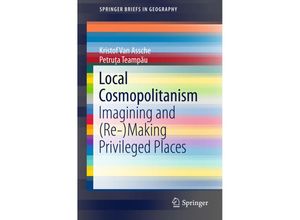This book offers a unique perspective on cosmopolitanism examining the ways it is constructed
and reconstructed on the small scale in an ongoing process of matching the local with the
global a process entailing mutual transformation. Based on a wide range of literatures and a
series of case studies it analyzes the different versions and functions of cosmopolitanism and
points to the need to critically re-examine current conceptions of globalization. The book
first illustrates the interplay between networks and narratives in the construction of
cosmopolitan communities in three specific cities: Trieste Odessa and Tbilisi. Each has a past
more cosmopolitan than the present and each uses that cosmopolitan past to guide them towards
the future. Next the book focuses on narrative dynamics by isolating several discourses on the
cosmopolitan place and figure in European cultural history. It then goes on to detail the
internal representations and local functions of larger wholes in smaller communities shedding
a new light on issues of inter- disciplinary interest: self- governance participation local
knowledge social memory scale planning and development. Of interest to political scientists
anthropologists economists geographers and philosophers this book offers an insightful
contribution to theories of globalization and global local interaction bringing the local
discursive mechanics into sharper focus and also emphasizing the semi- autonomous character of
narrative constructions of self and community in a larger world.



